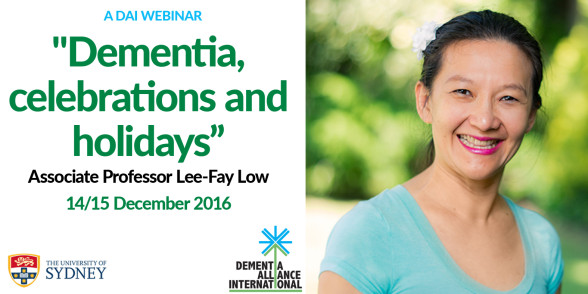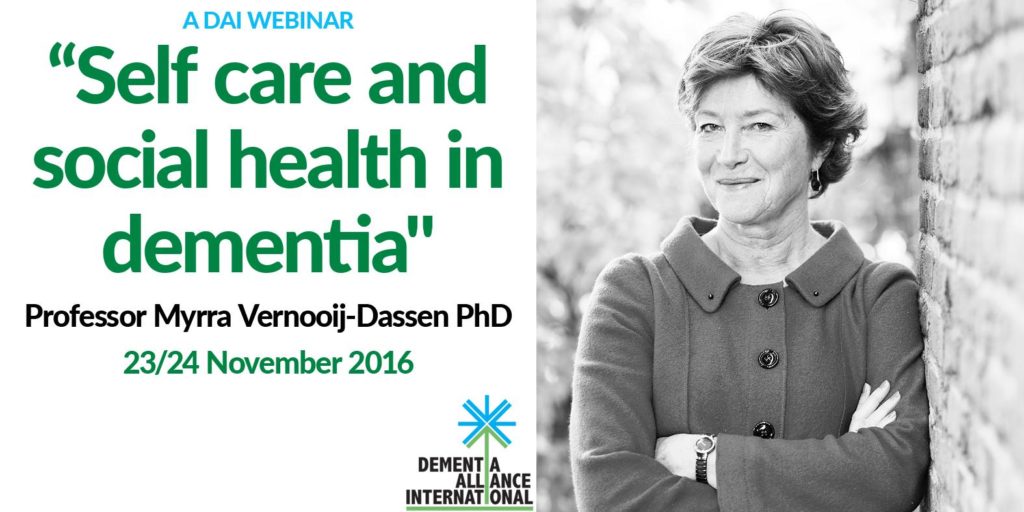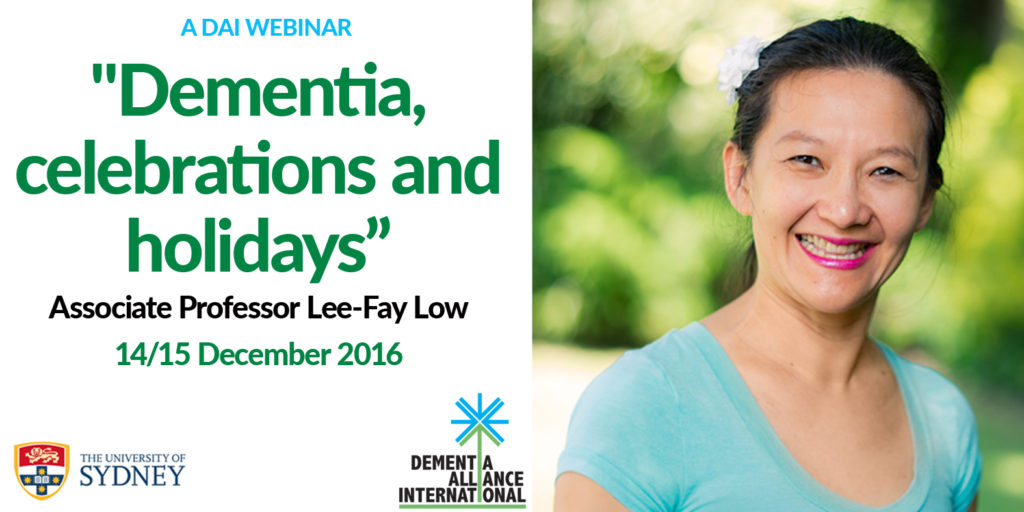Highlighted here are the last two DAI "A Meeting Of The Minds" Webinars for 2016. We welcome you to join us, and suggest you book in now, as the Festive season is almost upon us!
If you follow the link to register for each event, you will find out the times in your city and more detailed information about each event.
November Webinar:
- November 23, 2016 - 3.00 PM (EST) New York USA
- November 24, 2016 - 7.00 AM Sydney (EST) Australia
About Myrra's session: Self care is self-evident from early childhood on. Being deprived from self care goes at costs for dignity. The new concept of social health in dementia indicates how interpersonal relations can help to deal with the threat of declining self care. Social health involves making a dynamic balance between opportunities and limitations, affected by external conditions such as social and environmental challenges. As opposed to prescribed disengagement, social health focuses on people’s capacity to fulfil their potential and obligations and the ability to manage their life with some degree of independence despite a medical condition.
Consistent with the mission of dementia advocates, the focus is on what people can do and no longer ignoring capacities. Ignoring capacities unnecessarily contributes to exclusion and suffering. A social health hypothesis can be formulated stating that use and stimulation of remaining capacities and social inclusion improve quality of life. The effects of several psychosocial interventions such as occupational therapy support this hypothesis. These interventions support self care and facilitate normal life. The verious interventions will be discussed in the webinar. The results of interventions focusing on social health are gradually contributing to a turning point in dementia care and policy: the replacement of the disaster scenario with the scenario of living well with dementia.
Register here...
December Webinar:
- December 14, 2016 - 3.00 PM (EST) New York USA
- December 15, 2016 - 7.00 AM Sydney (EST) Australia
About Lee-Fay's session: Most of us have things we like and dislike about family celebrations and holidays. Spending time with family, new experiences and a break from routine, and an indulgent lifestyle can be both pleasurable and difficult. There is no research on celebrations and holidays for people with dementia, so this session draws on general research on holidays with reflection on how this may apply to living with dementia. Holidays are associated with increased all-cause mortality.
The reasons for this are unclear and may include increased alcohol consumption, increased travel and physical recreation during holiday periods, and increased stress. Emergency hospital visits during holidays are associated with increased risk of death, possibly because of lower levels of or less expert staff. Women have reported that holidays do not always give them more ‘free’ time but may require an intensification of necessary activities. However holidays have also been described as times of social bonding and reaffirmation of social-identity. There will be an opportunity for participants to think about strategies that they may use to manage the difficult aspects of upcoming celebrations and maximize positive effects.


